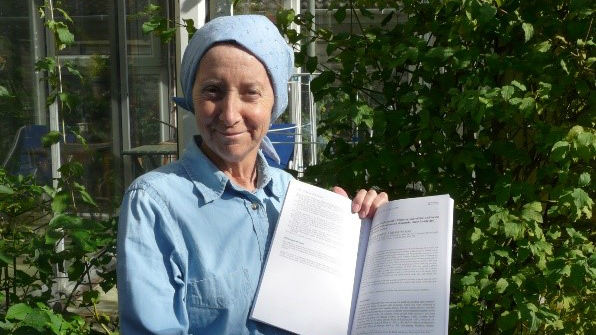Professor Richard Cheston will deliver this week's inaugural Beatrice Godwin Lecture – a memorial event hosted by the University of Bath’s Centre for Death & Society to coincide with the national ‘Dying Matters Awareness Week’.
The event, which takes place at the Bath Royal Literary and Scientific Institution (BRLSI) on Wednesday 15th May, will highlight the challenges dementia and Alzheimer’s disease place on end of life care service and support. It has been organised in memory of former Bath PhD student, Beatrice Godwin, who died of cancer while researching this topic.
Dementia and end of life care
According to the Alzheimer’s Society, there are currently 850,000 people living with dementia in the UK. Yet with an ageing population these numbers are set to soar to 2 million by 2051. Already 225,000 will develop dementia this year; one person every three minutes.
Tonight’s inaugural lecture will consider the impact of the disease on people’s memory and what might be done to improve their experiences when it comes to end of life care.
Keynote speaker, Richard Cheston is Professor of Dementia Research at the University of the West of England. His primary research interests relate to understanding the emotional impact of dementia and developing psychological interventions for people affected by dementia.
Centre for Death & Society Director, Dr John Troyer explained: “Beatrice Godwin was a PhD student here in the Department of Social & Policy Sciences, within the Centre for Death and Society who was studying the issue of dementia and end of life care. She was blessed with great personal intellectual qualities, an unfailing tenacity and commitment to her research despite illness and discomfort.
“We created this inaugural lecture both to remember her and her research, but also to give people a chance to talk about death and dying and this growing issue of Alzheimer’s and dementia.”
Celebrating Beatrice
Beatrice started her studies at Bath in 2003 completing a Masters of Research in European Studies. She then continued her studies, beginning a PhD in 2005, which focused on the experiences of people living with dementia in the United Kingdom. Beatrice had an interest in the communication and insight of people with advanced dementia.
Shortly after starting of her doctoral studies, Beatrice was diagnosed with lymphoma and her ill health resulted in a number of admissions to hospital and suspensions of her study. In 2014, she was in remission and resumed work on her doctoral project. Tragically, early in 2015 Beatrice became unwell again, and the return of lymphoma was diagnosed as terminal.
She had started her fieldwork and was interviewing people with dementia in residential homes across the South West. She undertook these interviews alongside intensive medical treatments whilst continuing to write about her research.
In memory of Beatrice's work, personality and the contributions she made to the Centre for Death and Society (CDAS), Dr Troyer and colleagues hope this lecture will become an annual event in the CDAS calendar.

